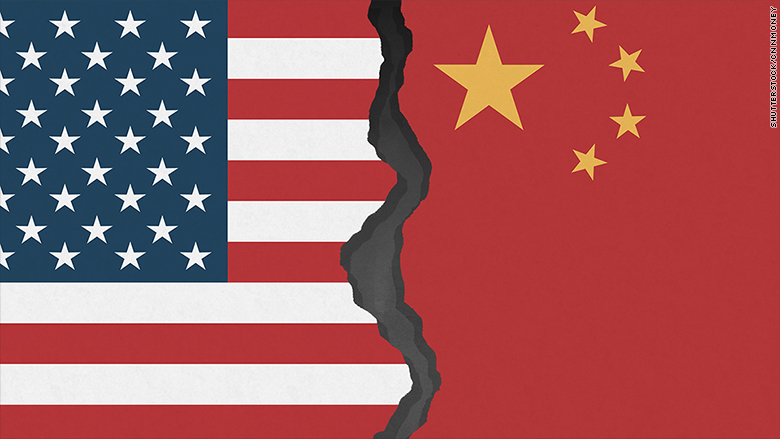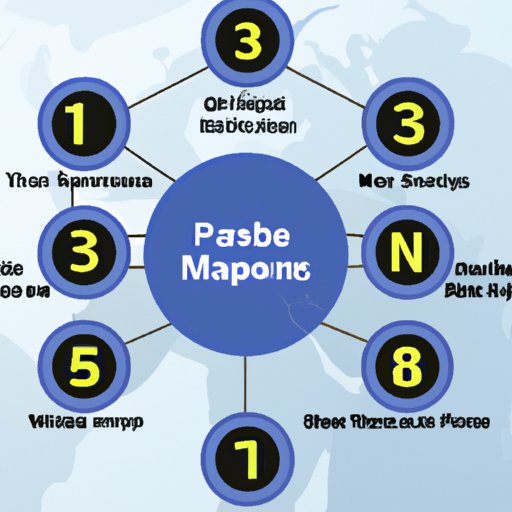The China Market: Hurdles For BMW, Porsche, And Other Automakers

Table of Contents
Intense Domestic Competition
The Chinese automotive market is fiercely competitive, a significant hurdle for foreign automakers. Rapidly expanding domestic brands like BYD, NIO, and Xpeng are not only gaining market share but also setting the pace with technological advancements. These domestic players are increasingly offering technologically advanced and sophisticated vehicles at competitive prices, posing a direct threat to established international brands.
- Aggressive pricing strategies from domestic manufacturers: Chinese brands often undercut foreign competitors, leveraging economies of scale and government support to offer highly competitive pricing.
- Rapid innovation in electric vehicles (EVs) and autonomous driving technologies from Chinese brands: Domestic automakers are leading the charge in EV technology and autonomous driving features, areas where many international brands are still catching up. This technological edge is a major China market automotive hurdle.
- Strong government support for domestic automakers: The Chinese government actively promotes the growth of its domestic auto industry through subsidies, tax breaks, and favorable regulations. This support creates an uneven playing field for international players.
This intense competition forces established international brands to constantly innovate and adapt their offerings to remain relevant and competitive. The pressure on pricing and technological advancements is immense, demanding significant investment in R&D and efficient manufacturing processes to overcome these China market automotive hurdles.
Regulatory and Governmental Hurdles
Navigating China's complex regulatory environment presents a significant China market automotive hurdle for foreign automakers. Import tariffs, stringent emission standards, local content requirements, and ever-changing government policies create a challenging landscape. Bureaucracy and evolving regulations can be time-consuming and incredibly costly.
- Stringent environmental regulations and emission standards: China has ambitious goals for reducing emissions, leading to increasingly strict environmental regulations that require significant investment in compliance.
- Complex import and export procedures: The import and export processes in China can be cumbersome and require extensive documentation and approvals, adding to operational costs and delays.
- Ever-changing government policies affecting foreign investment: Government policies impacting foreign investment can shift unexpectedly, creating uncertainty and requiring constant adaptation and monitoring.
Understanding and adapting to these regulations is crucial for long-term success, often requiring significant investment in compliance and lobbying efforts to overcome these China market automotive hurdles. This necessitates a dedicated team focused solely on navigating the regulatory landscape.
Infrastructure and Supply Chain Challenges
The vast geographical expanse of China and the variations in infrastructure across different regions create logistical complexities for automakers. This, coupled with potential supply chain disruptions, presents another significant hurdle in the China market.
- Varied levels of infrastructure development across different provinces: Differences in infrastructure development across regions can lead to inconsistencies in logistics and distribution, impacting delivery times and costs.
- Potential for supply chain disruptions due to geopolitical factors and resource availability: Geopolitical instability and fluctuations in the availability of key resources can disrupt supply chains, leading to production delays and shortages.
- Challenges in maintaining consistent quality control across a large and diverse supply chain: Managing a large and diverse supply chain across a vast geographical area presents challenges in maintaining consistent quality control and standards.
Robust supply chain management and strategic logistics planning are essential to overcome these challenges and ensure efficient operations. Investing in technology to improve visibility and streamline processes is crucial in tackling these China market automotive hurdles.
Cultural Nuances and Consumer Preferences
Understanding the nuances of Chinese consumer preferences is paramount for success. Evolving tastes, brand loyalty, and cultural sensitivities require careful consideration for effective marketing and sales.
- Growing preference for electric and hybrid vehicles: Chinese consumers increasingly favor electric and hybrid vehicles, demanding that automakers adapt their offerings to meet this demand.
- Emphasis on digitalization and connected car features: Chinese consumers value digitalization and connected car features, requiring automakers to incorporate these aspects into their product design and marketing.
- Importance of brand reputation and social media influence: Brand reputation and social media influence play a crucial role in shaping consumer perceptions and purchasing decisions in China.
Tailoring marketing campaigns and product features to resonate with specific Chinese consumer segments is essential for achieving market penetration. Understanding and adapting to these cultural nuances is vital in overcoming these China market automotive hurdles.
Data Privacy and Cybersecurity Concerns
China's strict data privacy regulations and concerns about cybersecurity pose significant challenges for automakers collecting and utilizing consumer data. Compliance is not merely advisable, but essential.
- Strict data localization requirements: Regulations require data to be stored within China's borders, posing logistical and operational challenges for international companies.
- Regulations governing the collection and use of consumer data: Stringent regulations govern how consumer data is collected, used, and protected, requiring strict adherence and compliance.
- Cybersecurity threats and the need for robust data protection measures: The risk of cybersecurity breaches necessitates robust data protection measures and cybersecurity infrastructure to maintain consumer trust and comply with regulations.
Investing in robust cybersecurity infrastructure and complying with data privacy regulations is paramount for maintaining consumer trust and avoiding legal repercussions. Ignoring these China market automotive hurdles can lead to severe consequences.
Conclusion
The China market presents both immense opportunity and significant challenges for automakers like BMW and Porsche. Successfully navigating the intense competition, complex regulatory landscape, infrastructure hurdles, cultural nuances, and data privacy concerns requires a long-term strategic vision and significant investment. Overcoming these China market automotive hurdles demands a deep understanding of the local market, adaptability, and a commitment to innovation. By addressing these challenges proactively, automakers can unlock the potential of this dynamic and lucrative market. To learn more about optimizing your strategy for the China market and mitigating these hurdles, contact us today for a consultation.

Featured Posts
-
 Aulnay Sous Bois Pas De Verbalisation Des Commercants Ouverts Le 1er Mai
May 27, 2025
Aulnay Sous Bois Pas De Verbalisation Des Commercants Ouverts Le 1er Mai
May 27, 2025 -
 Cbss Decision Watson Season 2 Postponed To 2026
May 27, 2025
Cbss Decision Watson Season 2 Postponed To 2026
May 27, 2025 -
 Us China Trade Relations Dominate Asia Summit Agenda Amid Tariff Concerns
May 27, 2025
Us China Trade Relations Dominate Asia Summit Agenda Amid Tariff Concerns
May 27, 2025 -
 Watch Ted On Comedy Central Hd A Complete Viewing Guide
May 27, 2025
Watch Ted On Comedy Central Hd A Complete Viewing Guide
May 27, 2025 -
 Florent Malouda On Osimhen A Potential Game Changer For Chelsea
May 27, 2025
Florent Malouda On Osimhen A Potential Game Changer For Chelsea
May 27, 2025
Latest Posts
-
 Understanding The Countrys Evolving Business Geography
May 29, 2025
Understanding The Countrys Evolving Business Geography
May 29, 2025 -
 Investor Concerns About High Stock Valuations Bof As Response
May 29, 2025
Investor Concerns About High Stock Valuations Bof As Response
May 29, 2025 -
 Exploring New Business Opportunities Mapping The Countrys Growth Areas
May 29, 2025
Exploring New Business Opportunities Mapping The Countrys Growth Areas
May 29, 2025 -
 A Comprehensive Guide To The Countrys Hottest Business Locations
May 29, 2025
A Comprehensive Guide To The Countrys Hottest Business Locations
May 29, 2025 -
 The Countrys Business Landscape A Map Of New Opportunities
May 29, 2025
The Countrys Business Landscape A Map Of New Opportunities
May 29, 2025
